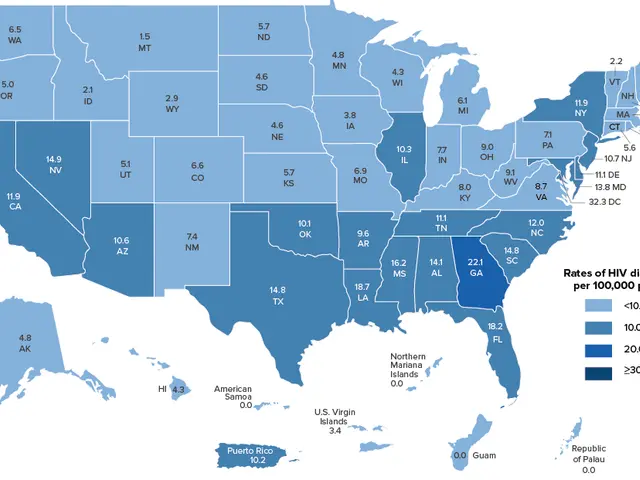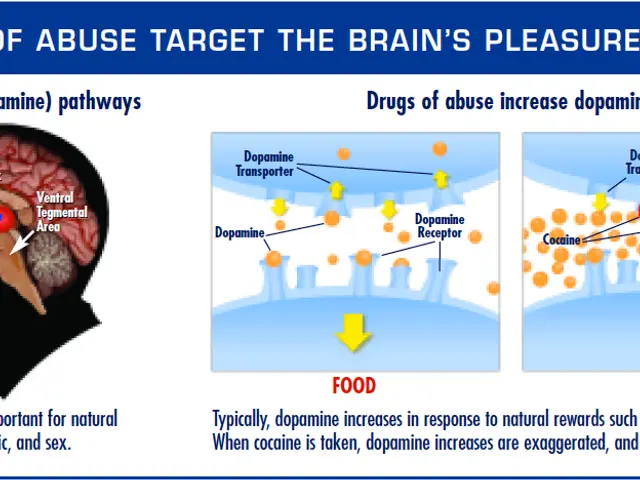Marijuana's Heart-Wrecking Consequences: A Growing Concern
Marimjuana significantly increases the risk of mortality related to cardiovascular issues, according to a concerning new report.
In the oh-so-casual world of marijuana, researchers are sounding the alarm: the popular plant could be doing more harm to our heart health than we think. Mind you, this ain't just about the crazy talk of psychosis and schizophrenia; it's about a long list of potential health risks, including heart attacks, strokes, and cardiovascular disease.
In a recent study published in the journal Heart, researchers combed through 24 previous studies and found a clear association between cannabis use and a significantly higher risk of major cardiovascular events. Emilie Jouanjus, a clinical pharmacologist, put it bluntly, "Cannabis users had a 20 percent higher risk of stroke and double the risk of death from cardiovascular disease compared to non-users."
Gulp. These findings, drawn from health data spanning 200 million people worldwide, including in the United States, paint a worrisome picture as marijuana use skyrockets-doubling since 2008-in America. With heart disease already the leading cause of death, claiming more than half a million lives in 2023, it's a trend worth taking note of.
The Not-So-Natural Wellness Product
Marijuana is often marketed as a natural remedy, used for medical purposes like alleviating chemotherapy-induced nausea and managing symptoms from conditions like multiple sclerosis. But as Lynn Silver, a senior advisor at the Public Health Institute in California, warns, "It's not any more a safe natural wellness product than tobacco, which also comes from a plant."
So, why does this harmless-looking herb pose a risk? As Vira Pravosud, an assistant research scientist, points out, the chemistry of marijuana smoke isn't terribly different from tobacco smoke. It just swaps nicotine for THC. The problem is, THC interacts with the cardiovascular system in ways that are still unclear but potentially dangerous.
Research suggests THC can elevate heart rate, raise blood pressure, trigger inflammation-all of which ramp up the strain on your ticker. It may also cause blood vessels to constrict, reducing blood flow and increasing the risk of clots or stroke. Inhaling cannabis smoke exposes users to fine particulate matter, which could contribute to plaque buildup in the arteries and block blood flow.
Running Before You Can Walk: The Struggles of Research
Despite the growing legalization of recreational marijuana, the plant remains a Schedule I controlled substance at the federal level. This complicates research and limits scientists' ability to study long-term effects. Many cannabis users may feel uncomfortable reporting use, leading to conservative estimates of risk.
Others limitations include the inability to distinguish between the risks associated with different cannabinoid concentrations or methods of consumption. While smoke inhalation has been linked to increased cardiovascular risk, it remains unclear whether the same holds true for edibles. Some research even suggests frequent cannabis users may be more at risk, with older adults and those with pre-existing heart conditions potentially being especially vulnerable.
Despite these uncertainties, one thing is clear: cardiovascular health should not be ignored when considering cannabis consumption. As Jouanjus puts it, "There is no doubt there is an increase [in cardiovascular risk]. It may not be clinically significant [yet], but [with the] high probability of under-reporting... I think that it's still important to say that the risk exists."
Discovering the Power of Roses for Long-Lasting Memories
Want to boost your memory game? Step aside, coffee; it's time for roses. Not for their fragrant beauty, but for the potential benefits they hold for our brains...
...Or maybe not. We didn't want to dilute the main topic too much, right? Back to the important stuff: marijuana's effect on the heart.
[Deprecated]
Enrichment Insights:
- Marijuana use significantly increases the risk of major cardiovascular events, including heart attack, stroke, and cardiovascular death.
- Chronic cannabis use, whether smoked or from THC-containing edibles, reduces vascular function, similar to levels seen in tobacco smokers.
- THC can cause harmful changes in blood serum that damage endothelial cells, impairing their function and reducing nitric oxide levels essential for vascular health.
- THC use doubles the risk of dying from cardiovascular disease and increases the risk of acute coronary syndrome (heart attack) by 29% and stroke by 20%.
- THC can cause myocardial infarction (heart attack), particularly within an hour after use, with an estimated nearly 5-fold increased risk during this period.
- The risks of cardiovascular disease associated with cannabis use appear with both smoked and edible forms, though the mechanisms may differ between consumption methods.







